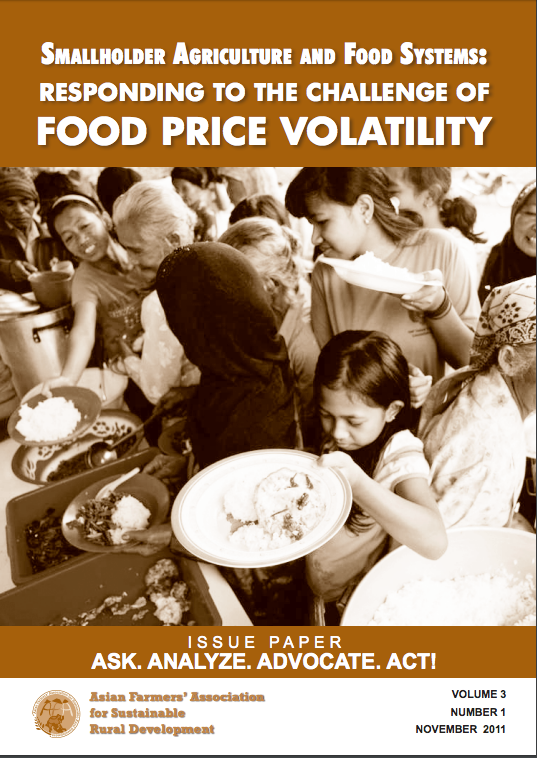In 2008, Ka Lita, a woman rice farmer in the Philippines, stood in a long line to buy rice that was being sold by the National Food Authority (NFA), the government’s rice trading agency. She had been standing under the hot sun for several hours, but she had no choice but to wait for her turn to buy rice from the NFA. The rice being sold by the government’s rice trading agency was the only rice that she could afford with her money. A few months earlier, Ka Lita sold her family’s harvest of paddy to a trader at a very low price, but the price of milled rice in the market had increased by at least two times since then. If she buys from rice retailers, she will not have enough to feed her family.
In many countries in Asia and the world, farmers were experiencing the same problem. Rice farmers and their families, like millions of poor people across the globe, faced hunger as the price of rice – a commodity which they produce – went up unexpectedly.
The sudden and unexpected increase in food prices in 2008 sent many people to hunger. It signaled to governments around the world that they have to find immediate and long-term solutions to food price volatility.
Food price volatility is the term used to refer to changes in the prices of food items that are so sudden and unexpected that governments are not able to immediately do anything to help people, especially the poor, cope with this problem.
In this issue paper, we will look at the reasons why food price volatility happens. We will also look at the work undertaken by farmers’ groups, governments and other international institutions like the Food and Agriculture Organization (FAO) of the United Nations to address this. Finally, we will look at possible solutions to this problem.


